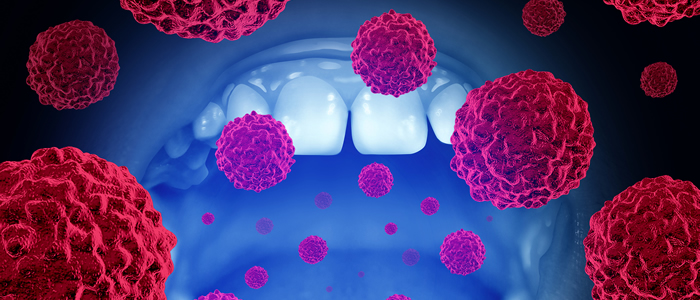
Tongue Cancer
Tongue cancer is a cancer involving the surface cells of the tongue. This can occur in the mouth, which is the oral portion of the tongue, or the throat, which is the oropharyngeal part of the tongue. Although tongue cancer accounts for only 2 to 4 percent of all cancers in the United States, patients need to understand the risk factors of the disease. Traditionally a disease associated with smoking and heavy alcohol usage, human papilloma virus (HPV) infection of the throat is increasingly becoming implicated as a risk factor in the development of this cancer. The HPV-related cancers typically present at least 10-15 years after initial exposure to the HPV virus, and tend to affect younger patients than the tongue cancers of the mouth. Regardless, early detection and treatment of tongue cancer can result in a favorable prognosis.
What are the Symptoms?
Tongue cancer that occurs within the mouth typically presents differently than tongue cancer that occurs within the throat. These oral tongue cancers are typically noticed by the patient as either a whitish lesion or a painful ulcer on the tongue. They can present on the top, side, or undersurface of the tongue. These are typically detected early due to their location, as they typically begin to affect or interfere with your ability to chew and eat sooner than tongue cancers of the throat.
Tongue cancers that occur within the throat may go undetected for longer, as they are typically not visible within the mouth. They often present as a neck mass, which indicates the spread of the cancer to lymph nodes within the neck. When they do affect the throat, they can cause a sore throat, a lump in the throat, and ear pain. As they increase in size, they can cause voice changes, difficulty swallowing, and bloody sputum.
To help prevent the progression of tongue cancer, early detection is extremely important. Our medical center follows unique screening protocols to help patients identify the possible signs and symptoms of tongue cancer.
How is Tongue Cancer Diagnosed?
Most experienced doctors diagnose tongue cancer by reviewing patients’ medical history and asking specific questions about their symptoms. Afterwards, a comprehensive physical examination of the entire oral cavity will usually be performed. Looking at the back of the throat with an endoscope, which is a thin, lighted tube inserted into the nose to visualize the throat, can help to visualize the lesion and surrounding area. Certain diagnostic tests may also be ordered. These tests may include computed tomography (CT), magnetic resonance imaging (MRI) and position emission tomography (PET) scans. Ultimately, a sample of the tissue is biopsied to confirm diagnosis.
What are the Treatment Options?
Depending on the position and type of the specific tumor, treatment for tongue cancer can vary significantly. As for most cancers, treatment options include surgery, radiation, and chemotherapy. Small cancers can sometimes be treated with one mode of treatment, whereas more advanced cancers may require all three modes of treatment. Examples of how the treatments are used include:
- Surgery: This is typically used to remove small, early stage tumors on the oral part of the tongue. Oftentimes for these tumors within the mouth, surgery alone can be curative. Large tumors, however, may require both surgery to remove the cancer and concurrent surgery to reconstruct the part of the tongue that is removed. In addition, in many instances of tongue cancer, surgery is required to remove the affected lymph nodes from the neck. Visualization of the back of the tongue, or the portion of the tongue within the throat, can be difficult. For this reason, surgery has not traditionally been used for cancers of this area. However, with the advent of robotic surgery, it is now possible to visualize the base of the tongue and surgery can be used as a means to treat cancers in this area.
- Radiation: The ultimate goal of radiation therapy is to prevent cancerous cells from dividing. Intensity-Modulated Radiation Therapy is the latest form of radiation that is designed to calculate the correct dose of radiation to treat specific tumors. Radiation can be used in small tongue cancers of the mouth, but is most useful as an adjunct to surgical treatment in these cases. Larger cancers of the mouth, as well as cancers of the base of tongue in the throat, often are treated with radiation and chemotherapy.
- Chemotherapy: This treatment option is commonly paired with radiation to help increase the effect of radiation in treating the cancer. Chemotherapy alone is typically not curative, but may help slow the growth of the cancer in certain patients.
- Drug Therapy: A doctor may also prescribe potent medication to disrupt the cell growth of cancerous cells at the molecular level. There are several drugs currently available. They are not typically used as first line treatment, but rather they are used in combination with chemotherapy and radiation to treat cancers that are either recurrent or non-responsive to other standard treatments.

